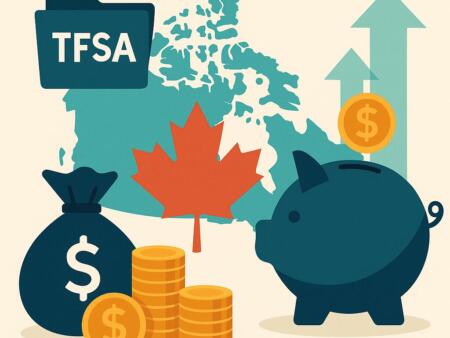Table of Contents

Introduction
If you’re working or planning to work in New Zealand, it’s vital to understand the concept of a living wage. The term is widely used in discussions about fairness at work, cost-ofliving pressures, employer ethics and pay levels. In this article we’ll dissect the topic “living wage NZ”, explore what it means, how it’s set, how it differs from the minimum wage, and answer many of the commonly asked questions around pay levels, what constitutes “good” pay, comfort levels, hourly rates and salary equivalents. Learn more about NZ company standings.
We also address many of the queries you might have seen floating around:
- What is the living wage in New Zealand?
- Is $27.80 a week living wage in NZ?
- Is $27 an hour good pay in NZ?
- Is $70,000 a good salary in New Zealand?
- What is a good salary to live comfortably in New Zealand?
And more.
This article uses the New Zealand context (NZD currency, typical cost-of-living, weekly hours, etc) and incorporates data from reliable sources including Living Wage Movement Aotearoa New Zealand, Stats NZ and others.
Let’s dive in.
What Is the Living Wage in New Zealand (2025)?
The living wage in NZ is the hourly rate deemed necessary for a worker and their family to meet the basic necessities of life, live with dignity and participate in society. According to the Living Wage Movement Aotearoa New Zealand:
“The income necessary to provide workers and their families with the basic necessities of life. A living wage enables workers to live with dignity and participate as active citizens in society.”
What is the current rate?
- From 1 September 2024 the rate was set at NZ $27.80 per hour.
- From 1 September 2025, the rate is NZ $28.95 per hour.
Who Pays the Living Wage in New Zealand (2025)?
It is not legally mandated for all employers. Instead it’s voluntary and often applies to organisations that have become “accredited Living Wage Employers”.
Why Does the Living Wage Exist in New Zealand (2025)?
Because while the minimum wage ensures a legal floor, many argue it doesn’t ensure a decent standard of living given rising costs of housing, food, transport and other essentials. The living wage is designed to reflect those real-costs.
Is NZ$27.80 an Hour a Living Wage in New Zealand (2025)?
No — there appears to be a misunderstanding here. The figure $27.80 refers to NZ $27.80 per hour, not per week. As noted above, the living wage rate from 1 September 2024 is NZ$27.80/hour.
If someone is being paid only NZ$27.80 per week, that is well below even part-time pay for a few hours, so it is not the correct figure.
NZ Minimum Wage vs Living Wage (2021–2025)
Is NZ$27 an Hour Good Pay in New Zealand (2025)?
Let’s explore this.
Context: The living wage
- The living wage for 2024/25: NZ$27.80/hour.
- For 2025/26: NZ$28.95/hour.
So $27/hour is slightly below the official living wage rate of $27.80/hour (for the 2024-25 period). It would not meet the benchmark living wage standard.
Context: Average earnings
- The median hourly earnings is about NZ$29.66/hour (based on data for the median weekly income of NZ$1,189/week) according to Jobted.
- According to another source, in 2025 Q1 the average ordinary time hourly earnings was about NZ$42.79/hour.
So $27/hour is below average full-time earnings, and below the “living wage” benchmark.
Conclusion
If you are earning $27/hour:
- It’s slightly below the living wage benchmark ($27.80) for 2024-25.
- It’s lower than typical full-time earnings for many workers.
- Whether it’s good depends on your personal circumstances (hours worked, family status, region, cost of living).
So, broadly: $27/hour is okay, but for many workers it would not be considered good or comfortable.
Is $70,000 a good salary in New Zealand?
Yes — $70,000 (NZD) is generally a solid salary in NZ, but again “good” depends on region, household size, lifestyle and debt.
Data to underpin this
- One source says the median weekly income for full-time workers aged 30-34 is about NZ$1,360/week, which works out to approx NZ$70,720/year.
- Another says the average salary is around NZ$70,000-80,000/year.
- Given these numbers, NZ$70,000/year is close to median for many full-time workers, meaning you’ll be earning more than about half of earners.
But: What “good” means
- In a high-cost region like Auckland, housing, transport and other costs are higher.
- If you have dependents or large debt, $70k may stretch more thinly.
- If you live in a low-cost region and/or are single or dual‐income, $70k could give you a very comfortable life.
Verdict
For many New Zealanders, yes: earning NZ$70,000/year is a good salary. It gives you above-average standing and likely puts you in a comfortable position, though it may not be “luxury” unless your costs are modest.

What is a good salary to live comfortably in New Zealand?
“Comfortably” means different things to different people — but we can frame approximate numbers.
What is “comfortable”?
I’ll define “comfortable” as: able to pay for essentials (housing, food, transport), have some savings, handle unexpected costs, have a reasonable discretionary budget and not feel chronically stretched.
Approximate benchmark
Given median incomes and cost-of-living data:
- Median Weekly Income: ~ NZ$1,189/week (median salary ~ NZ$61,828/year) per Jobted.
- For many workers in their 30s: median annual income ~ NZ$70,720.
- The living wage rate (hourly) reflects a wage that supports basic needs: NZ$27.80/hour → around NZ$57,824/year (assuming 40 hours/week × 52 weeks). (Note: many will work more or less hours or have overtime.)
From this, to live comfortably, you may aim for something above the living wage benchmark, and above the median full-time salary. A figure of NZ$80,000-$100,000/year might be considered comfortable for many households (depending on location and costs).
Variables to adjust for:
- Location: Big cities (Auckland, Wellington) = higher cost.
- Household size / dependents: Single vs partnered vs family.
- Housing situation: Own or rent. Debt.
- Lifestyle expectations: Travel, entertainment, schooling, etc.
- Other income: Additional earners in household help.
So what to advise?
If you’re single, renting in a less expensive region, NZ$70,000+ may provide comfort.
If you’re supporting a family in a high-cost city, you may aim higher (NZ$90,000+) to feel comfortable.
Is $26 an hour good pay in NZ?
Using the same reasoning as when we looked at $27/hour:
- $26/hour is below the living wage benchmark (NZ$27.80/hour for 2024-25).
- For a full-time 40 hour week, $26 × 40 = NZ$1,040/week → roughly NZ$54,080/year (before tax) if 52 weeks.
- Compared to median salary (~NZ$61,828/year) and comfortable living benchmarks, $54k is below average for full-time workers.
Conclusion
$26/hour can be decent in some circumstances (part-time work, single-income household in low-cost area). But for a full-time worker in a typical cost-of-living region, it would likely be below what most would consider “good pay” or enough to live comfortably without constraints.
Is healthcare free in New Zealand?
In short: Healthcare in NZ is free or heavily subsidised for many services, but not entirely free in all cases.
Public healthcare
The public health system — through the Ministry of Health (New Zealand) and district health boards — provides many services free or at very low cost: hospital stays, emergency treatment, many specialist services.
Costs may apply
- For primary care (GP visits) you may still pay a consultation fee.
- For dental care for adults there are costs; for children there’s more free coverage.
- Some elective services, private care may be costed.
- Prescription medications may have subsidies and fees.
So in context
While substantial healthcare costs are covered, the idea of “completely free healthcare” is not entirely accurate in all contexts (particularly primary care, adult dental, etc). Still, the system is more subsidised than in many countries. More NZ financing solutions.
What is considered a living wage in New Zealand?
This is largely a repeat of section 1, but to restate and add nuance:
- Defined by advocates as the income necessary to meet basic needs and live with dignity.
- As at 1 September 2024: $27.80/hour.
- As at 1 September 2025: $28.95/hour.
- It is a voluntary benchmark, not a legal requirement for all employers.
- It is updated annually by the Family Centre Social Policy Research Unit.
Therefore “what is considered a living wage” in NZ = at least $27.80/h (2024-25) and $28.95/h (2025-26) for organisations committing to the standard.
What is the average weekly pay in NZ?
Here are some recent data points:
- For 2025 Q2, average total weekly earnings by industry vary widely; across all industries, you might see figures such as NZ$1,666/week for full-time equivalents including overtime.
- According to Jobted, the median weekly income for wage and salary workers was NZ$1,189/week (~NZ$61,828/year) for data referenced.
Summary
So the average (or median) full-time weekly pay for many workers is in the ballpark of NZ$1,100-1,700/week, depending on industry, overtime, region.
What is the difference between minimum wage and living wage in NZ?
Key differences:
Minimum wage
- Set by the government via Employment New Zealand.
- It is the legal floor rate that employers must pay most employees aged 16+ (or specific starting-out/training categories).
- Example: From 1 April 2025 the adult minimum wage was NZ$23.50/hour.
Living wage
- A voluntary benchmark, set by advocacy groups (the Living Wage Movement Aotearoa NZ).
- Based on the cost of living (housing, food, transport, childcare, etc).
- Not legally required for all employers, although some agree to adopt it.
- Higher than the minimum wage. For example: living wage $28.95/hr vs minimum $23.50/hr in 2025.
Why the gap matters
The gap shows how many workers earning the legal minimum may still struggle with the cost of living, and why the living wage advocacy exists. indus.co.nz
What salary is considered good in New Zealand?
“Good salary” is subjective, but here’s a framework based on data:
- If you earn at or above median + some margin, you may consider it good.
- Median full-time salary appears to be around NZ$60,000-70,000/year for many workers.
- Earnings significantly above that (e.g., NZ$80,000-100,000+) would often be considered “good” and allow more financial flexibility and savings.
- For higher cost locations, or households with dependents, what counts as “good” shifts upwards.
Therefore, a salary in the region of NZ$70,000-100,000/or more could be considered good for many individuals. For roles requiring high skill/experience, six-figure incomes are common (NZ$100k+) as per roles in tech, engineering, senior management. paye.net.nz
What is the average salary in New Zealand in US dollars?
Converting NZD to USD depends on the exchange rate, which varies. But to provide context:
- Average or median full-time salary in NZ might be around NZ$65,000-70,000 per year (varies).
- If we assume an exchange rate approx NZ$1 = US$0.60 (as a rough estimate) then NZ$70,000 ≈ US$42,000.
- For a salary of NZ$100,000/year, that would be approx US$60,000 (again subject to current FX).
Note: Exchange rates fluctuate, and cost of living differences mean simple USD conversion doesn’t tell full story.
What is a good hourly rate in NZ?
To gauge a “good” hourly rate:
Benchmarks
- Living wage benchmark (2024-25): ~ NZ$27.80/hour.
- Median hourly earnings: ~ NZ$29.66/hour (Jobted).
- Many full-time salaries translate to higher hourly equivalents (given salaries NZ$70k+).
So what is good?
- If you’re paid significantly above NZ$30-35/hour (for full-time work), that could be considered good.
- If you’re in specialist or senior work, hourly equivalents of NZ$40+/hour are becoming common (given NZ$42.79/hour average ordinary time earnings in 2025 Q1).
Context again
Full-time hours might be 38-40/week. At NZ$30/hour × 40 × 52 = NZ$62,400/year. At NZ$40/hour × 40 × 52 = NZ$83,200/year. So hourly rate aligns with salary comfort thresholds.
Therefore, a good hourly rate might be NZ$30-40/hour and above, depending on role and cost environment.
How Much Is NZ$27 an Hour Annually in New Zealand (2025)?
Let’s calculate approximate annual gross income from NZ$27/hour, assuming full-time 40 hours/week and 52 weeks/year (i.e., no unpaid time off).
- Hourly rate: NZ$27
- Weekly gross: 27 × 40 = NZ$1,080
- Annual gross: 1,080 × 52 = approx NZ$56,160/year
If you work more or less hours, holidays, overtime, this will change. But this gives a ball-park figure.
Given tax, KiwiSaver, other deductions, take-home would be somewhat lower.
Compared to living wage benchmark (NZ$27.80/hour) and median salary (~NZ$70k/year), NZ$56k is below many comfort benchmarks, though might be okay for single persons in lower cost regions.
Is NZ$27 an Hour Decent Pay in New Zealand (2025)?
“Decent” is subjective: yes, it is decent in many parts of NZ for certain workers, but relative to living wage and average earnings, it’s on the modest side.
Strengths
- It is above some entry-level wages and likely above the starting‐out minimum wage.
- It provides a reasonable income (~NZ$56k/year) if working full time.
Weaknesses
- It is below the living wage benchmark of NZ$27.80/hour for 2024-25.
- It is below median salary earnings for many full-time workers in NZ.
- It may be limiting for higher cost regions or family households.
Conclusion
For a single person in a moderate‐cost area, yes: it could be “decent”. For a family or in a high-cost area, it might be tight and you might look to earn more to feel more comfortable.
What salary do you need to live comfortably in New Zealand?
We touched on this in section 5, but let’s add more detail.
Estimate for different household types
Here are very rough guidelines for annual gross salary needed to feel comfortable in various NZ scenarios:
| Household situation | Region (moderate cost) | Estimated salary for comfort* |
|---|---|---|
| Single adult | Regional NZ (rent modest) | NZ$60k-70k/year |
| Single adult | Auckland/Wellington (higher rent) | NZ$70k-90k/year |
| Couple with one child | Regional NZ | NZ$80k-100k/year |
| Couple with two children | High cost region | NZ$100k-120k+/year |
*These are approximate and assume standard hours, moderate debt, no extreme luxury spending.
What affects this number
- Housing/rent costs: major factor.
- Transport costs, school/childcare, health, food.
- Debt repayments (student loans, home loan, etc).
- Lifestyle: travel, entertainment, savings goals.
- Additional earners: dual income helps.
Practical tip
If you’re looking at job offers, consider not only the salary but also: location costs (housing), hours, overtime possibility, and household needs. A salary of NZ$70k may feel comfortable in many cases, but may not allow huge savings or luxury in a big city.
Is it cheaper to live in NZ or the US?
This is complex because both countries vary hugely by region, but some broad comparisons:
Cost factors in NZ
- Housing costs in major cities (Auckland, Wellington) are high.
- Smaller population, often fewer ultra-cheap goods than large US states.
- Healthcare: in NZ public system covers many costs — this can reduce net living cost compared to the US private healthcare model.
- Taxes, utilities, transport costs differ.
In the US
- Cost of living varies extremely by State (e.g., Texas vs California vs New York).
- Private healthcare costs may be significantly higher.
- Housing cost in some US cities can be even higher than major NZ cities; in smaller cities US cost can be lower than NZ.
So summary
For many people in New Zealand, living cost may be lower or comparable to many US urban areas when considering healthcare, transport, social services. But in big US cities cost can blow out. And in small US towns living cost may undercut NZ.
It’s not a blanket statement: in some parts of NZ you might pay more for certain goods or housing than in many US regions. The answer depends heavily on location and lifestyle.
Is $70,000 a lot in New Zealand?
Yes — “a lot” is relative, but NZ$70,000/year places you above the median for many workers and gives you decent earning power.
Considerations
- As we noted earlier, median full-time incomes appear around NZ$60-70k/year for many people.
- If you earn NZ$70,000/year and your housing costs are moderate, you’ll likely be comfortable and have discretionary spending and savings capacity.
- But “a lot” does not necessarily mean “luxury”: if you live in Auckland, have a family, heavy debt or high lifestyle expectations, NZ$70k may feel only okay.
- For some individuals earning NZ$70k is excellent, for others it’s just the beginning of what they’d hope to earn given responsibilities and cost pressures.
Verdict
Yes — a salary of NZ$70k/year is solid and above the typical for many households. It may not be “rich” but for most it’s more than sufficient to live well.
What is considered a good salary in New Zealand?
(We addressed this partly in section 11.) In summary:
- A good salary may be considered one that allows you to comfortably meet needs, save and have discretionary ability.
- For many individuals: NZ$70k-90k/year and up.
- For households: NZ$100k+ depending on location and dependents.
- For specialist/skilled roles: NZ$100k-150k+ is common.
- Good salary vs top salary: depends on industry, experience, seniority.
Thus, good salary is context-dependent, but if you earn substantially above the median and above the living wage benchmark, you’re doing well.
What is the take home pay for 70,000 in New Zealand?
Take-home (net) pay will depend on tax brackets, KiwiSaver contributions and any other deductions. Let’s estimate for NZ$70,000 gross/year.
Approximate calculation
- Gross annual salary: NZ$70,000
- Income tax: New Zealand rates (for 2024/25) — first NZ$14,000 approx taxed at 10.5%, next up to NZ$48,000 at 17.5%, etc (as example).
- KiwiSaver contributions: e.g., 3% employee contribution, possibly matched by employer.
Let’s rough it:
- Taxable income NZ$70k minus KiwiSaver 3% (~NZ$2,100) = NZ$67,900 taxable.
- Approx tax maybe ~NZ$10-12k (rough estimate).
- Net pay maybe around NZ$58k-60k/year = ≈ NZ$ 1,100-1,200/week.
Important: This is a rough estimate. For precise number use NZ tax calculator with correct brackets, exemptions, KiwiSaver rate.
What income is considered rich in New Zealand?
“Rich” is subjective. Some indicators:
- If you earn well above the median (e.g., NZ$120k-150k+), you might be in the top ~10-15% of earners.
- If you earn NZ$200k+, you almost certainly are in the higher earning bracket in NZ.
- Distribution graphs show full-time average earnings around NZ$42.79/hour in March 2025 (~ NZ$88k/year equivalent for 40 hours/week) in some cases.
So if your income is significantly higher than the average and affords you a comfortable or luxury lifestyle, you might be considered “rich” in NZ terms.
How much is 70k a year per hour NZ?
To convert NZ$70,000/year to hourly, assume a standard 40 hours/week and 52 weeks/year (2080 hours). Hourly rate=70,0002080≈NZ$33.65/hourtext{Hourly rate} = frac{70{,}000}{2080} approx NZ$33.65/hourHourly rate=208070,000≈NZ$33.65/hour
If you work more or less hours, the figure changes. So roughly NZ$34/hour.
Compare that to the living wage benchmark (~NZ$28.95/hour in 2025) and average hourly earnings (~ NZ$29.66/hour median). So NZ$70k/year is decent relative to many hourly earnings.
Summary and final thoughts
In New Zealand today:
- The living wage benchmark is NZ$27.80/hour (from 2024) and NZ$28.95/hour from Sept 2025.
- This is a voluntary benchmark: many but not all employers pay it; legal minimum wage is lower.
- Earning NZ$27-28/hour is roughly at the living‐wage level, but for many working full-time and/or with dependents or in high-cost regions you may need more to feel comfortable.
- Salary wise, NZ$70k/year is solid and places you above many earners; a more “comfortable” salary for many households may be NZ$80k-100k+ or more depending on region/size/costs.
- Good hourly rates are those significantly above median hourly earnings (~NZ$29-30/hour) — perhaps NZ$30-40/hour+ for many full-time roles.
- To live comfortably you must take into account location, household size, lifestyle, housing costs, transport, debt and savings.
- The gap between minimum wage (legal floor) and living wage shows how cost-of-living pressures are real for lower-paid workers.
Key takeaway: If you or your employer aim to pay or earn a wage that allows dignity, participation in community and a decent standard of living (not just survival), then aiming for above the living wage benchmark is wise. A salary of NZ$70k+ is respectable; higher incomes will give more breathing room.






